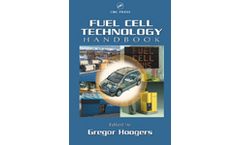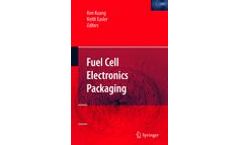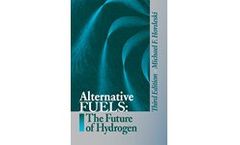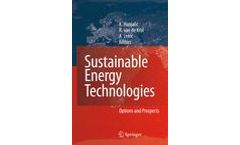Refine by
fuel-cell-system books
8 books found
Fuel cell systems have now reached a degree of technological maturity and appear destined to form the cornerstone of future energy technologies. But the rapid advances in fuel cell system development have left current information available only in scattered journals and Internet sites. The even ...
Fuel cells are an important enabling technology for the hydrogen economy and have the potential to revolutionize the way we power our world. However, many challenges must be overcome before fuel cell systems become a competitive alternative for consumers. Proton Exchange Membrane Fuel ...
Today's commercial, medical and military electronics are becoming smaller and smaller. At the same time, these devices are packed with more functions and demand more power. This power requirement is currently met almost exclusively by battery power. A fuel cell is like a battery converting chemical energy directly to electricity. The convergence of fuel cell technology and microelectronics is ...
The continuing development of fuel cells offers promising technologies for the conversion of chemical energy from hydrocarbon fuels into electricity without forming air pollutants. Perovskite Oxides for Solid Oxide Fuel Cells provides insight into the materials aspects of one of the most promising fuel cell types available. Solid Oxide Fuel Cells (SOFCs) have significant advantages over other ...
Fuel Cells have become a potentially highly efficient sustainable source of energy and electricity for an ever-demanding power hungry world. The two main types of fuel cells ripe for commercialisation are the high temperature solid oxide fuel cell (SOFC) and the low temperature polymer electrolyte membrane fuel cell (PEM). The commercial uses of which include, but are not limited to, military, ...
Fuel Cells have become a potentially highly efficient sustainable source of energy and electricity for an ever-demanding power hungry world. The two main types of fuel cells ripe for commercialisation are the high temperature solid oxide fuel cell (SOFC) and the low temperature polymer electrolyte membrane fuel cell (PEM). The commercial uses of which include, but are not limited to, military, ...
Revised throughout, this book addresses many of the factors impacting our energy use, including the availability and desirability of various fuels – especially the use of hydrogen. The new edition examines new hydrogen-based technology developments, fuel cell technology breakthroughs, ultra low emission transportation applications, and hydrogen highway projects. Also discussed are the ...
This book provides an up-to-date review of the status and prospects of different options in energy conversion and storage technologies, as seen by a panel of world leading experts. It offers a platform for readers engaged in planning and undertaking new energy solutions or retrofitting and redesigning the existing installations to confront and to compare the pros and cons of various novel ...








